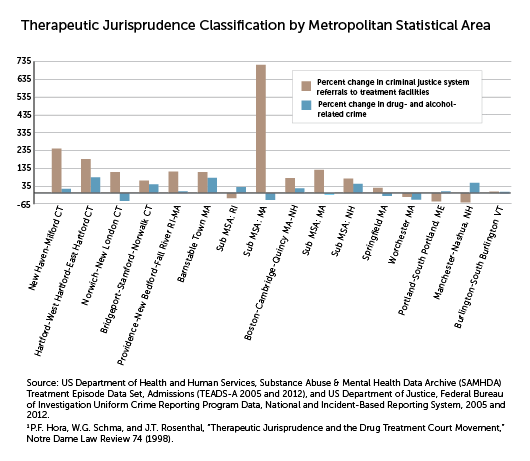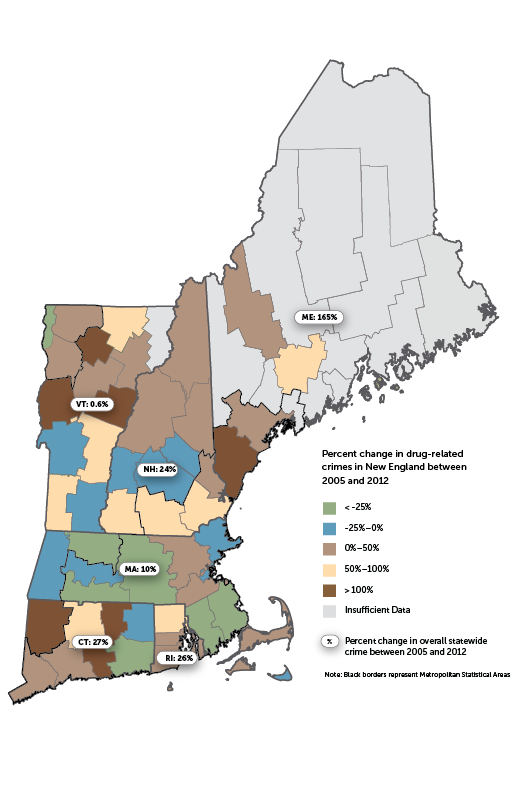Mapping New England Drug-Related Crime and Admissions to Treatment Facilities, by County 
Many legal scholars argue that a better response to drug- and alcohol-related crimes than incarceration is therapeutic jurisprudence (TJ). [1] Implemented through drug-treatment courts, TJ address offenders' social, mental, and substance-abuse problems in addition to their criminal activity. [2]
The map shows changes in drug-related crimes per 100,000 individuals between 2005 and 2012, with Grand Isle County, Vermont, experiencing the largest decreases, and Middlesex County, Connecticut, experiencing the largest increases. Data are not available for criminal justice system referrals at the county level, but we can look at contemporaneous changes in admissions to treatment centers at the level of the metropolitan statistical area (MSA). By comparing them to changes in drug- and alcohol-related crimes in the same location, we can classify areas as having high levels of TJ, little to no TJ, or preemptive TJ. Or we can say they are stable.
Norwich-New London, Connecticut, and Springfield, Massachusetts, are practicing preemptive TJ, experiencing both increases in admissions to treatment facilities from criminal justice referrals and decreases in drug- and alcohol-related crimes. Worcester, Massachusetts, is stable, with decreases in both referrals and substance-related crimes. Two MSAs are practicing little to no TJ: Portland-South Portland, Maine, and Manchester-Nashua, New Hampshire.


Endnotes
- P.F. Hora, W.G. Schma, and J.T. Rosenthal, "Therapeutic Jurisprudence and the Drug Treatment Court Movement," Notre Dame Law Review 74 (1998).
- Bruce J. Winick, "Therapeutic Jurisprudence and Problem Solving Courts," Fordham Urban Law Journal 30 (2002).
Articles may be reprinted if Communities & Banking and the author are credited and the following disclaimer is used: "The views expressed are not necessarily those of the Federal Reserve Bank of Boston or the Federal Reserve System. Information about organizations and upcoming events is strictly informational and not an endorsement."




 collapse all
collapse all
 expand all
expand all